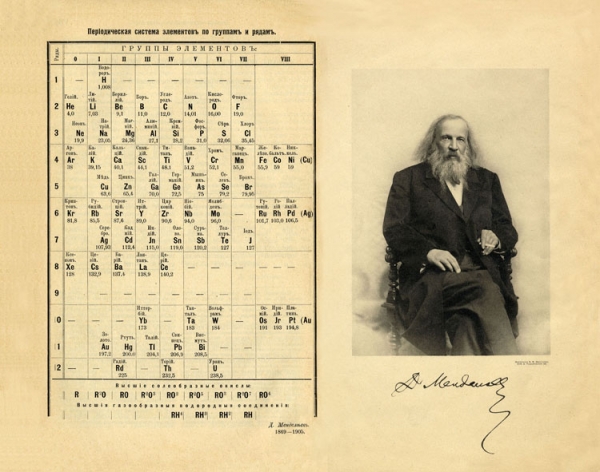Evgeny Aronov, Sergey Dobrynin
Historian of Russian and Soviet science Loren Graham about Kovalchuk, Lysenko, Putin and the Russian Orthodox Church
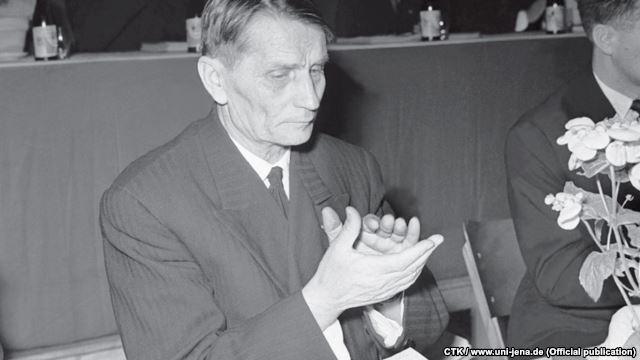
Trofim Lysenko
Russian science has not fully recovered from the drastic reforms of the Academy of Sciences, is forced to simultaneously deal with complications in the form of a bureaucratic mess and to look for ways to survive all the cooling political and economic climate. One of the new anxiety symptoms and activity of the President of NRC “Kurchatov Institute” Mikhail Kovalchuk, at the highest level promoting the idea of a mysterious “converged technologies”, which is a leading Russian physicist, academician Vladimir Zaharov has already been compared with the “new Lysenkoism”.
The correspondent of Radio Liberty Eugene Aronov (E. A.) and Sergey Dobrynin (S. D.) discussed the possibility of exhumation of the spirit of Lysenko in Russia today with the famous American historian of science, Professor at mit and an associate researcher at Harvard University Lauren Graham. Graham first came to Moscow in 1960 on a student exchange program with Moscow state University since visited the Soviet Union and later in Russia almost every year, earning a reputation as one of the most authoritative researchers of Soviet and Russian science and writing about it nearly two dozen books. The last of them, “the Ghost of Lysenko: Epigenetics and Russia”, was published this year.

Cover of the book “the Ghost of Lysenko
In an interview with Radio Svoboda, Lauren Graham told about his personal meeting with Trofim Lysenko over forty years ago, about why the topic of lysenkovshina regained importance, and speculate about the interaction of ideology and science.
A. E.: You often visited and even lived in Moscow since the 60-th year and for many years sought a meeting with Trofim Lysenko, which finally happened in the spring of 1971. You remember her circumstances?
“I created my theory, better than they have created, but remained an outsider – view, next to me no one even wants to sit at dinner”
Of course, I remember. He several times refused to meet with me, but in the end, we all met, and it happened quite by accident. I went to dine in the House of scientists in Moscow, a place where they often dined many Soviet researchers. And suddenly I saw Lysenko: he was sitting all alone at the back of the hall. I sat down at his table – in the Soviet public catering establishments it was business as usual – and ordered a soup. Awhile we ate in silence, but then I turned around and said, “I know you, Trofim Lysenko. I wrote about you.”
Lysenko answered: “I too know who you are, I know that you are studying Soviet science and know a ton about it. But me you made a lot of mistakes”. I said, “What are these errors?” – “The biggest – said Lysenko, – the fact that you called me responsible for the death of some geneticists, in particular, Nikolai Vavilov. I was never a Communist party member, and I am not responsible for what he did to these people, the KGB. I’m not to blame”. I thought for a moment whether to protest, but decided that I have to do it, because it was kind of a historic moment, another opportunity I had. And I said, “I know you were not a member of the party, I wrote about it. But you are responsible for what happened to Vavilov. After all, you publicly accused him of sabotage in the presence of Stalin. And Stalin said, “Bravo, comrade Lysenko.” Vavilov was arrested and died in prison from starvation. You can’t take responsibility for it.”
“You have to understand that this meeting happened six years later, after Lysenko had been debunked and covered with shame”
Lysenko stood up abruptly and left. I’ve decided I’m never gonna see him again, and continued to eat his soup. But ten minutes later my companion came back and sat down again. “You don’t understand,” said he, ” I was always the black sheep. I couldn’t get a good education, as Vavilov and other geneticists. I was an ordinary farmer, I didn’t know foreign languages, but I knew their land and their crops, know better than people who had spent all his life in laboratories. And I created my theory, better than they have created, but remained an outsider – view, next to me no one even wants to sit for dinner”. Of course, you have to understand that this meeting happened six years later, after Lysenko had been debunked and covered with shame.
S. D.: You have looked very carefully at everything that is connected with Lysenko, and thoroughly knew his story. As a human being he turned out the way you imagined?
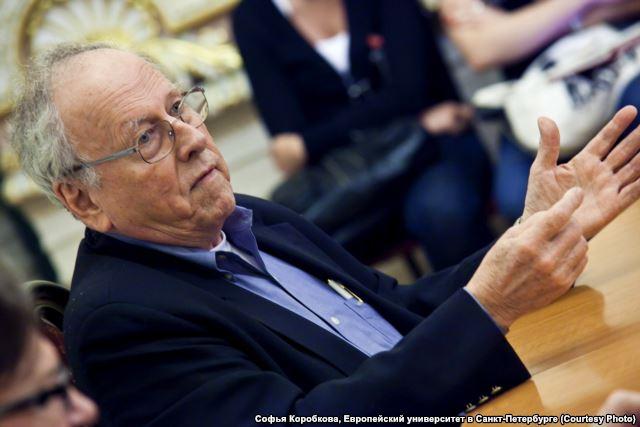
Lauren Graham
In General, Yes. I knew it should be someone with severe mental problems. I’m not a psychologist, but Lysenko was an obvious paranoid, which seemed like the whole world is against him. And that even in that moment, when he actually led the entire Soviet biology! And dining with him, I saw that you are dealing with the mentally ill.
S. D.: Personality Lysenko was monstrous or so it made the Soviet reality? The traditional question biologists – nature or nurture, nature or nurture?
EA: Can I say that here we are on what is called “ordinary evil”?
This is a very important question. Lysenko and Soviet reality are mutually corrupting each other. I am sure that in a normal democratic society, Lysenko would have been just a farmer, nonconformist, developing his own unorthodox methods. It wouldn’t do harm to anyone. But in Soviet society, the Lysenko doctrine was picked up by the Newspapers, and he was catapulted as high as he could dream, he was glorified, almost like some kind of Dnieper. Glory stunned and corrupted it. Perhaps Lysenko was initially a limited man with cockroaches, but it was the Soviet system made it – let’s face it – monster.
A. E.: is it Always in the West about Lysenko as a scientist and his ideas were unanimous?

Biologist Nikolai Vavilov
The consensus that Lysenko was a fraud, that he actually became part of the political pressure on Soviet science, has always existed and remains so now. But recently, there’s reason again to remember it. This about – achievements of biology in the last 15-20 years, primarily the development of epigenetics. Epigenetics claims that the inheritance of acquired characteristics is possible, anyway, in some special cases. But it was one of the Central hypotheses of the teachings of Lysenko. Against this background, it is natural to refer back to Lysenko and try to understand whether his ideas something sensible. That’s what I tried to do in his book.
E. A.: And you’ve come to the conclusion that “where Lysenko was right, he was not original, and where he was original, he wasn’t right.”
Yes, that’s right. It is worth noting that this formulation is a much more subtle assessment of Lysenko than traditional. Unlike many, I acknowledge that in some cases he really was right, though not original. Yes, the inheritance of acquired characteristics is possible, as believed Lysenko. Of course, he was not the first scientist who developed this theory, but he was right – probably by accident.
S. D.: it is Surprising that Lysenko never tried to extrapolate their ideas and methods on people and was limited to plants and animals.
“There was a time when it seemed that the Soviet government could support a program of human eugenics”
Yes, it is. Many researchers, especially in the West, believe that Lysenko received a lot of support in the Soviet Union, because his methods, his ideas of inheritance of acquired characteristics could help create the “new Soviet man”. But it’s not. When Lysenko began his career upstairs in the early 1930s, eugenics had already been discredited in the USSR. But in the 1920s the situation was different. There was a time when it seemed that the Soviet government could support a program of human eugenics. But Stalin rejected this idea, and by the time, when Lysenko came on the scene, any Association with the eugenics threatened with serious problems. Lysenko had to accept the party line.
S. D.: Isn’t it amazing that Stalin was not interested in eugenics? Indeed, in many respects, she was quite in the spirit of building a completely new society, to fit into the dream of global transformation on the basis of “scientific approach”.
I don’t think it’s amazing. In 1930-e years, on the background of the increasingly obvious threat posed by Nazi Germany, Stalin not only opposed eugenics, but it became increasingly nationalist views. He gave some support for the Orthodox Church, have adopted more stringent laws concerning marriage and abortion, in short, was clearly to support conservative values. And this was manifested in a variety of areas, biology was only one of them.
A. E.: is it Possible to say that in some awful sense, Stalin himself engaged in applied eugenics by destroying the whole class of Soviet society?
Yes, Stalin killed and repressed by the entire social and ethnic groups, but he never came for reasons of eugenics, and didn’t even use close the rhetoric – I read all his speeches. Stalin motivated his actions, not by biology, but by the ideas of Marxism, of class struggle.
S. D.: Lysenko retained power after Stalin’s death – he’s not left in the shade after a patron and enjoyed the support of Khrushchev, in fact, made a political career on debunking its bloody predecessor. Obviously, Lysenko loved to Khrushchev, for whatever reasons of their own?
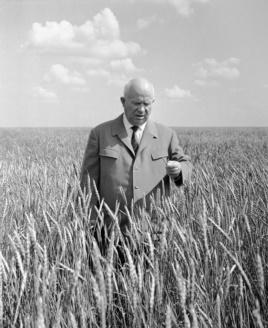
Nikita Khrushchev in the field
Lysenko are generally very well able to please the authorities. You know that Khrushchev was very interested in the corn, Stalin, incidentally, is not held in the slightest degree. Lysenko led Khrushchev in the field and boasted allegedly committed by the breakthroughs on the front of corn cobs. In addition, both were from the Ukraine, were both interested in agriculture, and so they had something in common, and Lysenko skillfully played this card.
A. E.: it was in the Soviet science system of checks and balances, similar to the one which happens in a political structure where divided branches of government? And if so, why she gave such a tragic failure in the history of Lysenko?
In the Soviet political system as the system of checks and balances did not work, but in science, it is to some extent existed, at least preserved the scientific principles: for example, the principle that hypotheses need experimental confirmation. But ultimately, in biology, the political system won scientific. Vavilov and other scientists have tried to prove that most of the provisions of the Lysenko doctrine based on nothing, but by this time politics is so captured Soviet biology that criticism based on facts, on scientific method, just stopped working.
S. D.: what do you think makes the story of Trofim Lysenko unique? Repression, political persecution, ideological pressure touched in the Soviet Union in virtually all areas of science, but the echo of lysenkovshina sounds particularly loud today.
“The political factor is the trend towards increasing conservatism and nationalism in Putin’s Russia. In such circumstances, the agenda of “we, Russians, are ahead of the world” will be enthusiastically supported by, what could these words may apply”
Lysenkoism, which we all thought was dead, is still alive. She to some extent is being revived in Russia today. In recent years, unfortunately, has published many articles and books in support of Trofim Lysenko. I think this can be explained by two factors – scientific and political. The scientific factor is the development of epigenetics, which gave some reason to say that Lysenko was right; of course, in a broad sense it is not, but such statements have to hear. But the political factor is the trend towards increasing conservatism and nationalism in Putin’s Russia. In such circumstances, the agenda of “we, Russians, are ahead of the world” will be enthusiastically supported by, what would those words nor treated. And her fine fit the story of Lysenko: “This guy was right, he was ahead of Western biologists for decades!”
S. D.: does this Mean that current Russian society is not so different from Soviet times of Stalin?
Oh no, it’s different. I agree that some places are manifested in common – and that’s unsettling. But it’s not as easy to talk about the return of Stalinism would be a serious exaggeration. Just look at science: Russian scientific community today is much more open – scientists have the Internet, have the opportunity to travel abroad. The majority of Russian biologists are full members of the international scientific community, they communicate daily with foreign colleagues, this was difficult to conceive in the days of Lysenko. In order in today’s Russia has again triumphed some kind of Lysenkoism, you need at least to disable the Internet and close the borders.
E. A.: was there someone among the Soviet scientists who have seen, foretold the exaltation of Lysenko and what it led to? And do you see in Russia today, a figure that could eventually at least to some extent, to repeat his way, the scientific dictator?
To answer your first question – Yes, there was. In 1939, hosted a major conference on genetics, Lysenko at that time still did not have full power. If you read the transcripts of the speeches of Vavilov and other scientists, you’ll see that they explicitly warned that a further rise of Lysenko to destroy Soviet biology. Not to say that it was a prediction of the upcoming lysenkovshina, it was rather a manifestation of fear, which, unfortunately, was justified. With regard to the emergence of a new Lysenko… Predict – a thankless task, but I will Express my opinion. I do not think that in the near future someone in the Russian science will receive the same power which was used by Lysenko. But the bad trend I see is the growing influence of people like Viktor Petrik or Mikhail Kovalchuk with his “convergent technologies.” Are people respected by authorities and publicly saying things that distort science.
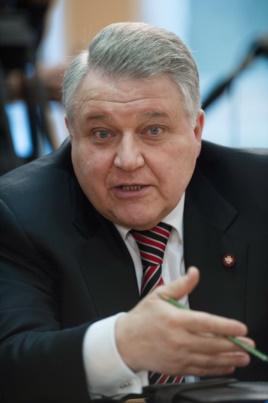
Mikhail Kovalchuk
But the influence is not absolute power. I don’t see in the near future Russia complete return to Stalinism. I know that many think otherwise, some of my Russian friends believe that I’m naive that I don’t appreciate threats. But as someone who for many years engaged in political analysis, I think that Russia have not yet returned to its tragic past and in fact not moving towards it. The same Putin is well aware that sometimes you need to listen to another point of view. This is especially evident in his economic policy: Putin admits opinions that do not coincide with his own.
S. D.: You said that Mikhail Kovalchuk has influence, but has no power, but the events of the past few years show that he may have committed this power to. The point is not that, like or do not like Putin, Stalin, and corruption of the system itself.
“We need a revolution to a new Lysenko
Kovalchuk is an extremely ambitious man, and he’s trying to replace his reformed Institute of the Academy of Sciences. Funny, because originally, the Kurchatov Institute was engaged almost exclusively on physics, and now it expands to other areas – biology and even social science. Of course, this is all very worrisome, but I don’t think Kovalchuk is the same danger which was represented by Trofim Lysenko. I visit regularly at international conferences and communicate a lot with Russian scientists, they openly criticize Kovalchuk. We need a revolution to a new Lysenko.
E. A.: was Lysenko victory over opponents the result of historical accident? If Yes, then there is reason to hope that such will never happen again. If not, what systemic factors made him win naturally?
“Pay tribute Lysenko: it is very skillfully manipulated by opportunistic ideology”
Was the victory of Lysenko grimace of history, an accident? I think not. Remember the situation at that time. Lysenko said my opponents, Vavilov and other intellectuals theorists, sitting in their laboratories, and study of fruit flies; fruit fly it is more important to ordinary Soviet workers. I’m a man of practice, I care about the Soviet people and think about how satisfying it is to feed. Unless real progress of Soviet agricultural science is not more important than the counting of chromosomes in fruit flies? It is impossible not to admit that in the ideological atmosphere of the time the words Lysenko sounded very convincing.
Moreover, Lysenko acted as a man of the people, as a farmer, as opposed to academic professors, whose devotion to the Soviet regime was in serious doubt; Vavilov, let me remind you, came from a bourgeois family, studied in the West and created a name for himself in science before the revolution. Pay tribute Lysenko: it is very skillfully manipulated by opportunistic ideologies and sustain their appeals to practicality than together and bowed to his side of Stalin.
E. A.: the system players involved in today to maneuver around Lysenko, is a Russian Orthodox Church, which in the original drama was absent. The extent to which the appearance of the Church on the political scene reinforces the impact of the restorers of lysenkovshina?
“In Soviet times, Trofim Denisovich was lauded as a radical anti-bourgeois scientist, and today touted, on the contrary, as a deeply Russian man, who fought against the corrupting influence of materialistic, soulless West
The role of the Church gives me anxiety. It is obvious that the Russian Orthodox Church leading to the onset of Western biological science on a broad front. In some areas, for example, in regard to genetically modified organisms, Church criticism, at least to a first approximation, merits attention; let’s not forget that secular Europe, too, belongs to GMO very skeptical. But when Putin starts to condemn GMOs as incompatible with the traditional purity of Russia and the evil machinations of the United States against nature and the natural man, and the Church, it echoes, it becomes clear that opposition to GMOs in Russia, unlike Europe, is rooted not in science, but in a deeply conservative mentality. Ten years ago, the Holy Trinity Lavra was released in the form of a book, recommended schools, a book called “General biology” that attacks to the whole of Western biological science and comments positively about Michurin, ideologically close to Lysenko. Very funny, we are witnessing an ideological somersault: in Soviet times, Trofim Denisovich was lauded as a radical anti-bourgeois scientist, and today touted, on the contrary, as a deeply Russian man, who fought against the corrupting influence of materialistic, soulless West. I do not know the extent to which the Patriarch personally shared these sentiments; they seem to me, to put it mildly, overexposure.
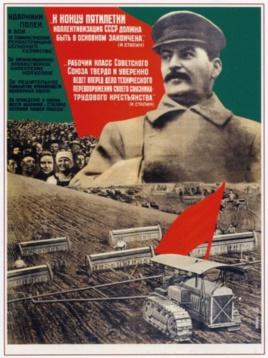
S. D. do you think that in the teaching of Lysenko’s mystical, religious, some latent promise miracle?
Very aptly noticed. Two years ago he published a book of Russian scientist Peter Kononkova “Two worlds, two ideologies,” which is the idea that Marxism, Lysenko was just an ideological camouflage and that in fact he was a deeply religious man, convinced that the world with all its flora and fauna is of divine origin. And, therefore, invalid attempts to arbitrarily change the God-given source device life. Magnetic in this context refers, for example, that Lysenko was against artificial insemination, because, they say, is unnatural; he condemned the manipulation of genes. Unfortunately, few Western scholars involved in Soviet and Russian science, are familiar with the amazing concept Kononkova. They by inertia continue to believe that Lysenko won as a Marxist, they are unaware that Lysenko, it turns out, was a Christian whose faith and scientific beliefs were together in full harmony.
S. D.: I am not a supporter of the idea of national mentality as such, but sometimes I think that Russia is downright historically doomed to repeat lysenkovshina in one or another of its varieties. I even find Parallels between Lysenko and Rasputin: both – from the heartland who find themselves in the capitals, promising Russia’s prosperity, therefore, favored by the highest authority, who believed in their miraculous recipes. What would you say?
“Russia from this point of view, there is a guardian of the traditional order, including nature in its purest form”
I would not began to speak about doom, because it implies that Russia is not capable of change. This is not so. At the same time, Western man can not pay attention to the strange fact that Russia has always regarded itself as a country which is destined some special way in this world; a country with a unique culture and value system, not be absorbed by the civilization of the West, particularly the modern West, decomposed as it seems the Russian conservatives, under the influence of homosexuality, lesbianism, and now transgenderism. Russia from this point of view, there is a guardian of the traditional order, including nature in its purest form. As Lysenko and Rasputin, it seems to me, we risk losing sight of more than seen, placing them in a row.
E. A.: Professor Graham, of the Russian Orthodox Church – new system the player on the side of the animators of lysenkovshina. Well, what happens on the other side of the fence, is there in the opposite camp strong players? Not just individuals but institutions that are able to repel the animators. Those institutions that have not appeared in the era of the rise of Lysenko.
“Putin’s repression, the revival of the Russian Orthodox Church, a large-scale departure of a strong Russian biologists abroad, of course, weaken the resistance of the system, but only partially”
Some time ago the Russian scholar Mikhail Anokhin published in “Literaturnaya Gazeta” polysemous article. Responded about six famous people in Russia, with the majority of responses were strongly negative. Supporters of Lysenko in the Russian science is today a minority, albeit vocal. In society in General proportions may be different, but not for the people now it (however, I must say that the people has significantly changed over the sixty years that have passed since I first visited in Russia); it is about the scientific community. Here’s another example: leading researcher of Institute of General genetics, Lev Zhivotovsky published a book “Unknown Lysenko”, which is very complimentary comments about your hero. The author has subjected it to severe criticism – both public and enterprise within the Institute. It seems that in the end, the scientific reputation Zhivotovsky irrevocably destroyed – is this not evidence of systemic resistance to Lysenkoism, which you are asking? Putin’s repression, the revival of the Russian Orthodox Church, a large-scale departure of a strong Russian biologists abroad, of course, weaken the resistance of the system, but only partially. It seems to me that the system is immune to Lysenkoism at the moment is already so strong that it can overturn only a total restoration of the dictatorship and the hermetic isolation of the country from the outside world.
A. E.: is it Fair to say, then, to conclude that scientists, or the whole Department, implicated in the restoration of lysenkovshina, will lose state funding and grants?
I know people in the Russian Fund of fundamental researches, which claim the grant applications. I don’t think they will satisfy the request received from any of the academic or research staff, promoting the ideas of Lysenko. However, in fairness to add that the Federal Agency for press and mass communications supported financially the publication of the book Kononkova, which I have mentioned. This is direct state sponsorship has alarmed me and many colleagues in Russia. However, this is only one institution. If they are all limited and then big trouble in this.
S. D.: What worries me, as though it more precisely to say is persistent harmfulness of the ideas of Lysenko: in your book, you write that Russian scientists refuse to engage in advanced research, for example, in the field of epigenetics, only because of its apparent proximity to Lysenko paradigm. Trofim died, but his Ghost lives on.
“There is, so to speak, the inheritance of acquired characteristics, the cornerstone of the teachings of Lamarck. And Lysenko”
To my great regret, it is. Just one example – the siege of Leningrad during the Second world war. It is known that children of women who experienced during pregnancy for a long period of hunger, exposed to certain diseases, this is trivial. That is not trivial, as demonstrated by epigenetics, is the fact that these diseases also often have grandchildren and even great-grandchildren of these women. These unexpected results were obtained by scientists who have studied the effects of a severe famine in Amsterdam in 1944-1945. German troops have blocked food supplies to the city, so that he died about 22 thousands of civilians. The consequences of this famine showed up a few generations, as deviations in the health of grandchildren survived the blockade of women. There is, so to speak, the inheritance of acquired characteristics, the cornerstone of the teachings of Lamarck. And Lysenko.
The question is, why not double-check these important results in the offspring of women of Leningrad who survived the famine, far more prolonged and extensive than in Amsterdam? How many Leningraders died in the siege, a million, a million and a half? As far as I know – and I asked about this many colleagues in Russia – Russian studies this tragic experience does not exist. The famous St. Petersburg biologist Vladislav Baranov me directly and said there are fears that we could be accused of Lysenkoism, if we find inter-generational, long term effects of starvation in Leningrad.

Alexander Nesmeyanov and Trofim Lysenko
S. D.: Maybe, hypothetically, a snag in the fact that in the USSR in 50-ies of the last century medstatistiki did not collect such data, in contrast to the Dutch scientists?
I admit that it was true, but that doesn’t mean that today, after decades, we will not be able, with proper financing, to conduct surveys in St. Petersburg among the grandchildren of women who survived the blockade, to verify the truth of the hypothesis of intergenerational effects of famine. There is a huge statistical base, it has the potential to reach several hundred thousand people, at least.
S. D.: We know examples from history when the state ideology created a favorable environment for science. Come to mind, in particular, the success of Soviet physics since 50-ies of the last century. We are also aware of the opposite situation (Lysenko, to far to walk for example), when ideology is destroying science. Where is the line between benign and pernicious influence of ideology on scientific creativity?
“Dictatorships as bad transformerait scientific achievements in technical innovations, but because of their research and development from a purely economic point of view are unprofitable”
Authoritarian or totalitarian state as was the Soviet Union, sometimes beyond state with a democratic system and market economy in the ability to mobilize society’s resources in the rapid development of a particular area of science, as a rule, directly connected with military power. So it was with the Soviet project of creating the atomic bomb or space satellites. But in regard to the relations of science with the production of military goods, and with the satisfaction of material needs of the population, the ideology is based on democracy and the market, in the long term contributes to the solution of these tasks better than the ideology of the repressive and prohibitive. Dictatorships as bad transformerait scientific achievements in technical innovations, but because of their research and development from a purely economic point of view are unprofitable: in the Soviet Union at one time were good computers, but who are they now interested?
E. A.: There is an analogy with China, which knows the incredible examples of technical regress. The Chinese invented the wheel, the wheelbarrow, the stirrup, the harness, the compass, paper, printing, gunpowder, porcelain. These inventions, however, have not found wide commercial application and in some point have been forgotten, while in the West they are found worthy application in practice. The causes of stagnation in China, historians attribute it to the account of asphyxiating, corrosive control over all aspects of society from the bureaucracy with its ideology of heaven’s mandate to govern the Empire.
Yes, the Soviet physicists have received two Nobel prizes for the development of lasers, but at present Russia’s share in the commercial laser market does not exceed one percent. In the history of the Soviet Union there were seven or eight nabulyato physics – less than today live in my city of Boston.
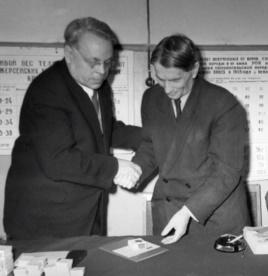
Deputy Minister of agriculture of the USSR Konstantin Pisin
awards gold medal Trofim Lysenko
S. D.: Although, it would seem that a market economy requires a rapid return on investment, which fundamental science could not promise.
However, history proves that pure and applied science works best in the ideological atmosphere of democracy and market, political and economic monopoly. Take the Moscow mathematical school, at the time one of the best in the world. Its Foundation was laid by Mykola Lisinym and Dmitry Egorov, even before the victory of the Bolsheviks with their commitment to total Central planning.
S. D.: nevertheless, investments in science in the Soviet times was colossal.
I do not deny it. The attachments were large, and they made possible the creation of large scientific base. Strain, in my opinion, in some of its key aspects, but very large. One such deformation is the concentration of theoretical science in the system of the Academy of Sciences and the transformation of higher education institutions to the level of pedagogical colleges. Still in Russia there are no universities that famous in the first place, its scientists than teachers. Close contact big scholars with undergraduate and graduate students, as experience shows, gives very good results.
E. A.: it Is believed that great scientists were isolated from the students consciously in order to prevent infection fragile minds with harmful ideas.
I agree with that. From the start the Bolsheviks doubted the political loyalty of professors, they inherited from the tsarist regime, and therefore pushed her to the Academy where she could not actively influence young students.
E. A.: bi-Bi-si did television play “Copenhagen” about the fateful meeting between Niels Bohr and Werner Heisenberg in German-occupied Denmark in the 40th year; John Nash became the hero of the film “mind Game”; in America and Europe with great success was inspired by the mathematics of the play “Proof” playwright David Auburn; Matt Damon plays a brilliant nugget-mathematics in the film “Good will hunting”. What do you think will collect the cash whether the movie or the play about Trofim Lysenko, if they suddenly appear, or this character, as his era is too difficult to understand the average Western viewer?
“The art starts where the end of easy answers, and today we’re excited watching the plays about Galileo, despite (or maybe due to the contradictions of his personality, so in the near future we will see performances about Lysenko”
I think this is a very promising idea. Moreover, I’m pretty sure that at some point it will be implemented. The story of Lysenko is full of drama, with many still unclear, controversial issues, and this should make it very attractive to the viewer. And at the same time difficult to understand. The simplest is to stand in the position of the Supreme judge, and to denounce Lysenko as a charlatan of the science and moral monster, doomed hundreds of beautiful scientists on the deprivation, torture or death. And to put on this point. I do not, I try to understand him and the times in which he lived. So sometimes I am faced with accusations of attempts to rehabilitate Lysenko. I did not whitewash. If the biographer of Hitler draws the reader’s attention to the trauma experienced in childhood his protagonist, except he justifies his subsequent crimes? Art starts where the end of easy answers, and today we’re excited watching the plays about Galileo, despite (or maybe due to the contradictions of his personality, so in the near future we will see performances about Lysenko.
Radio Liberty © 2016 RFE/RL, Inc. | All rights reserved.
http://www.svoboda.org/content/article/27797500.html




